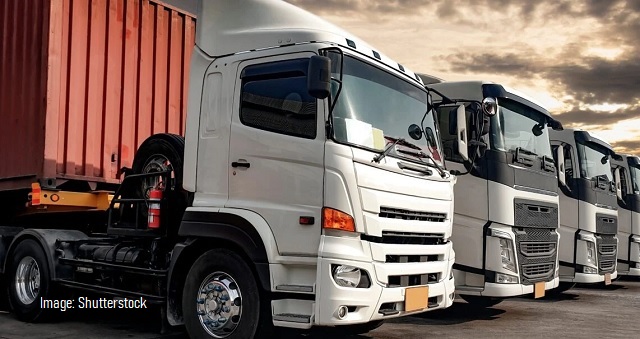SUPPLY CHAIN CRISIS: 70,000 Self-Employed Truckers in California Forced Off The Road Under New Democrat State Law
By The Geller Report

The Democrats war on the hard working American ratcheted up another unimaginable notch. But this time, it not only outs the small businessman out of business, throw in massive shortages (food, supplies etc.), supply chain issues etc. It’s a catastrophe
Sadly, the U.S. Supreme Court denied a review on whether California Assembly Bill 5 (AB-5) violates the Federal Aviation Administration Authorization Act of 1994 as it applies to self-employed truck drivers.
70,000 Self-Employed Truckers in California Face Shutdown Under New State Law
Industry says it’s ‘pouring gasoline’ on supply chain crisis
By Allan Stein, The Epoch Times, July 8, 2022:
Tens of thousands of independent California truck owner-operators could be out of business soon under a new statewide worker classification law designating them as employees.
On June 30, the U.S. Supreme Court denied a review on whether California Assembly Bill 5 (AB-5) violates the Federal Aviation Administration Authorization Act of 1994 as it applies to self-employed truck drivers.
“Gasoline has been poured on the fire that is our ongoing supply chain crisis,” the California Trucking Association (CTA) wrote in a June 30 response to the high court’s decision regarding the association’s legal challenge to the bill.
“In addition to the direct impact on California’s 70,000 owner-operators—who have seven days to cease long-standing independent businesses—the impact of taking tens of thousands of truck drivers off the road will have devastating repercussions on an already fragile supply chain, increasing costs and worsening runaway inflation,” the association added.
“We are disappointed the court does not recognize the irrevocable damage eliminating independent truckers will have on interstate commerce and communities across the state.
“The legislature and [Gavin] Newsom administration must immediately take action to avoid worsening the supply chain crisis and inflation.”
The California State Assembly adopted AB-5 in September 2019, sparking CTA’s legal challenge and the Supreme Court’s latest decision.
The bill’s primary sponsor was Lorena Gonzalez (D), a union leader and former Assembly member.
Under AB-5, a self-employed commercial truck owner must satisfy a three-part test to be considered an independent contractor, with exceptions for construction trucking services.
The bill adds that existing law “creates a presumption that a worker who performs services for a hirer is an employee for purposes of claims for wages and benefits arising under wage orders issued by the Industrial Welfare Commission.”
Existing law defines employees for purposes that include “any individual who, under the usual common law rules applicable in determining the employer-employee relationship, has the status of an employee.”
Self-Employed Truckers Entitled to BenefitsThe bill would entitle those self-employed truck drivers and owners to the same benefits and workers’ compensation as regular employees.
According to Globecom Freight Systems, a leading provider of transportation services, owner-operators make up 9 percent (350,000) of the commercial truckers on the road today. Their average salary is about $50,000.
A recent study by the American Trucking Association found that the nationwide shortage of 80,000 truck drivers could double by 2030. In light of the shortage, many trucking companies now offer lucrative sign-on bonuses and salaries to attract more drivers.
The Federal Motor Carrier Safety Administration recently launched an apprenticeship driver program for those aged 18–to–20 that would allow them to cross state lines to help further alleviate the shortage.
Tony Bradley, president and CEO of the Arizona Trucking Association, criticized AB-5 as a “horribly misguided piece of legislation” by California labor unions that will have a “drastic impact across all trucking.”
AUTHOR
Pamela Geller
EDITORS NOTE: This Geller Report column is republished with permission. ©All rights reserved.

This article is courtesy of DrRichSwier.com, an online community of citizen journalists, academics, subject matter experts, and activists to express the principles of limited government and personal liberty to the public, to policy makers, and to political activists. Please visit DrRichSwier.com for more great content.

